Imagine walking through your home and seeing your furry friend waiting at the door, tail wagging, eyes shining with pure love. Dogs bring joy, laughter, and companionship into our lives, often becoming members of the family.
But behind that happy face, some dogs face serious health concerns that can make everyday life challenging for both the dog and the owner.
Many popular dog breeds are prone to severe health problems, ranging from joint issues to heart disease or breathing difficulties. Understanding these risks is not meant to frighten pet parents—it’s about awareness, early detection, and ensuring a healthy life for our companions.
By staying informed and proactive, we can help our dogs avoid suffering and live happier, longer lives.
According to the American Kennel Club, obesity is the most common preventable disease in dogs, affecting approximately 25% of the general canine population. This fact underscores the importance of maintaining proper nutrition, a balanced diet, and regular exercise to prevent common health issues in dogs.
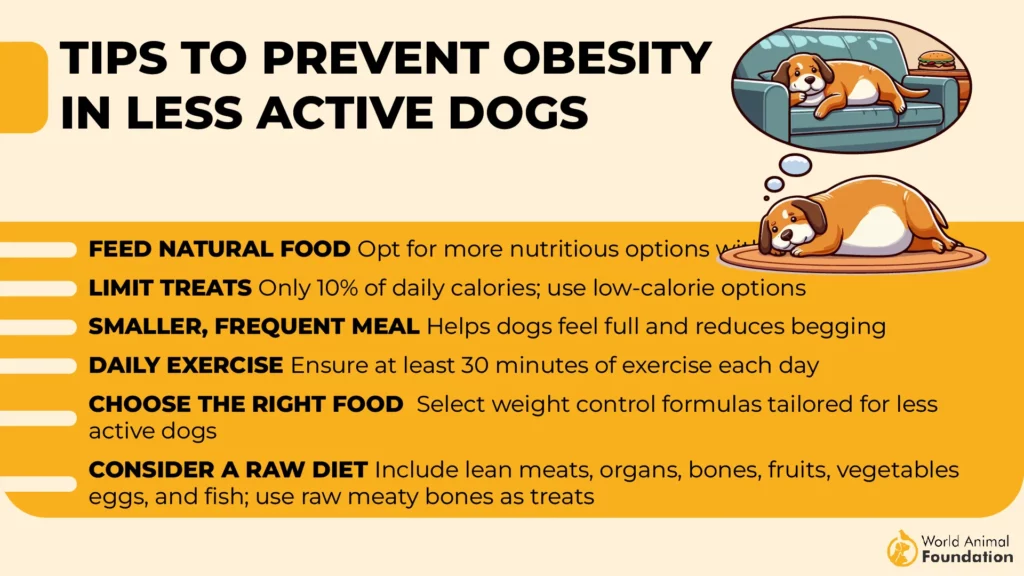
With knowledge, care, and love, pet parents can make a huge difference in keeping their dogs healthy and thriving.
While this article focuses on specific purebred dogs, mixed-breed dogs can also face common health problems, so all pet parents should remain vigilant.
Best Dog Breeds Prone to Severe Health Problems
1. English Bulldog

The English Bulldog is one of the most recognizable and beloved dog breeds, famous for its wrinkled face, stocky build, and friendly, gentle personality. Their affectionate nature makes them a popular choice among families and urban pet owners alike.
According to Wikipedia, despite their charm, English Bulldogs are prone to several serious health issues that every pet parent should be aware of.
Common Health Problems
Breathing problems: As a brachycephalic dog breed, Bulldogs often struggle to breathe properly, especially in hot or humid conditions, which can lead to severe respiratory distress.
Hip and elbow dysplasia: These joint issues can cause pain and limit mobility, making it difficult for Bulldogs to stay active and energetic.
Skin infections: Their skin folds can trap moisture and bacteria, resulting in frequent infections if not cleaned regularly.
Eye problems: Bulldogs may suffer from cherry eye or dry eye conditions, which require veterinary attention to prevent complications.
Care Tips
Maintain a healthy weight: Providing a balanced diet and avoiding overfeeding helps reduce the strain on their joints and prevents obesity-related complications.
Moderate, regular exercise: Short daily walks or gentle playtime keep Bulldogs active without overexerting them, supporting both heart and joint health.
Clean skin folds regularly: Using a damp cloth or special wipes, clean between wrinkles to prevent bacterial buildup and ear or skin infections.
Routine vet visits: Regular vet check-ups allow for early detection of heart, joint, and eye problems, keeping your Bulldog healthier for longer.
Fun Fact
Despite their breathing challenges, English Bulldogs were once used for bull-baiting in England. Today, their short noses can make them snore loudly—a charming reminder of their history and unique anatomy!
2. Pug
Pugs are small, charming dog breeds known for their playful personality, wrinkled face, and big, expressive eyes. They have a loyal and affectionate nature, making them excellent companions for families and city dwellers alike.
Many flat-faced breeds are prone to respiratory challenges and require careful monitoring in warm climates.
Common Health Problems
Breathing difficulties: As a brachycephalic dog breed, Pugs often experience labored breathing, snoring, and can struggle in hot or humid weather, which may lead to serious respiratory issues.
Eye conditions: Their prominent eyes make them susceptible to corneal ulcers, dry eye, and other ocular problems that require timely veterinary care.
Obesity and joint stress: Pugs can gain weight easily, leading to joint problems and a higher risk of heart disease if their healthy weight is not maintained. Maintaining a healthy weight prevents excess weight from worsening joint and heart issues.
Skin infections: Their facial folds can trap dirt and moisture, which can result in frequent hair loss, ear infections, and skin irritations.
Care Tips
Maintain a healthy weight: Feeding a balanced diet and avoiding overfeeding is crucial to prevent obesity-related complications and support joint health.
Regular, gentle exercise: Short walks and play sessions help Pugs stay active without overexerting them, supporting both their dog’s health and heart function.
Clean facial folds and ears: Daily cleaning of skin folds and ears prevents bacterial buildup, reducing the risk of skin and ear infections.
Schedule routine vet visits: Frequent check-ups allow for early detection of eye, joint, and respiratory issues, keeping your Pug healthy and comfortable.
Fun Fact
Despite their small size, Pugs were historically companions to Chinese royalty. Their distinctive snoring and wheezing today are charming reminders of their flat-faced anatomy!
3. Cavalier King Charles Spaniel
The Cavalier King Charles Spaniel is a small, elegant dog breed adored for its affectionate nature and expressive eyes. Known as a lapdog and family companion, this breed thrives on human interaction and brings joy to households.
However, Cavaliers are especially prone to certain health problems that pet parents should monitor carefully. Certain breeds are at a higher risk of developing kidney disease, underscoring the importance of regular check-ups and maintaining proper hydration.
Common Health Problems
Heart disease (mitral valve disease): Many Cavaliers develop progressive heart issues at a young age, which can reduce their average lifespan if not managed early.
Spinal problems (syringomyelia): This painful condition affects the spinal cord, causing discomfort and sensitivity around the neck and back.
Ear infections: Their long, floppy ears can trap moisture and debris, increasing the risk of chronic ear infections. Cleaning their ears regularly helps prevent ear infections, keeping your dog comfortable and healthy.
Eye conditions: Cataracts and progressive retinal atrophy are common, potentially leading to vision loss without prompt veterinary attention.
Care Tips
Regular heart check-ups: Frequent veterinary examinations help detect early signs of mitral valve disease, enabling timely treatment and a longer, healthier life.
Gentle physical activity: Daily walks and controlled play help maintain mobility while avoiding stress on sensitive joints and spine.
Ear hygiene: Clean and dry their ears regularly to reduce ear infections and discomfort caused by trapped moisture.
Healthy diet and weight management: Providing a balanced diet and monitoring calorie intake protects against obesity, which can worsen heart and joint conditions.
Fun Fact
Cavaliers were beloved by British royalty for centuries, and some historical portraits show them resting comfortably on the laps of queens and princesses. Their small size and loving nature make them perfect indoor companions, but their hearts require extra care!
4. German Shepherd
The German Shepherd is a highly intelligent and versatile dog breed, admired for its loyalty, courage, and strong protective instincts. Popular as family pets and working dogs alike, this energetic breed excels in police work, search and rescue, and service roles.
Despite their remarkable abilities, German Shepherds are susceptible to several serious health problems that pet parents should know about.
Common Health Problems
Hip and elbow dysplasia: These joint problems can lead to chronic pain, difficulty walking, and mobility issues as the dog grows older.
Degenerative myelopathy: This progressive spinal disease affects coordination and can eventually cause paralysis if not detected early.
Bloat (gastric torsion): German Shepherds have a higher risk of this life-threatening condition, which requires immediate veterinary attention.
Skin allergies: Sensitive skin can lead to itching, irritation, and secondary infections if not addressed properly.
Care Tips
Maintain joint health: Providing a balanced diet with joint-supporting nutrients, along with moderate exercise, helps reduce the risk of hip and elbow dysplasia.
Monitor spinal health: Watch for signs of weakness or wobbling in the hind legs and schedule regular vet visits for early detection of degenerative conditions.
Prevent bloat: Feed smaller, frequent meals, avoid vigorous exercise right after eating, and be alert for abdominal swelling or discomfort.
Skin care routine: Regular grooming and bathing with gentle products help prevent allergies and keep the coat healthy and free of irritants.
Fun Fact
German Shepherds are often considered the “ultimate working dog” due to their versatility, but even the strongest dogs can suffer quietly from spinal or joint issues. Their intelligence means they often hide discomfort, so attentive care is essential.
5. French Bulldog

French Bulldogs are small, charming dog breeds known for their bat-like ears, compact build, and playful personality. They have become one of the most popular companion dogs in urban settings due to their affectionate and sociable nature.
However, their unique body structure makes them prone to several serious health problems that pet parents should watch for.
Common Health Problems
Breathing difficulties: As a brachycephalic dog breed, French Bulldogs often struggle to breathe properly, especially in hot or humid conditions, which can lead to serious respiratory distress.
Spinal problems: Their short, muscular backs make them prone to intervertebral disc disease and other spinal issues, affecting mobility and comfort.
Skin infections: Their skin folds can trap moisture and bacteria, causing irritation and increasing the risk of ear infections.
Eye conditions: French Bulldogs may develop cataracts or other ocular problems that require regular monitoring.
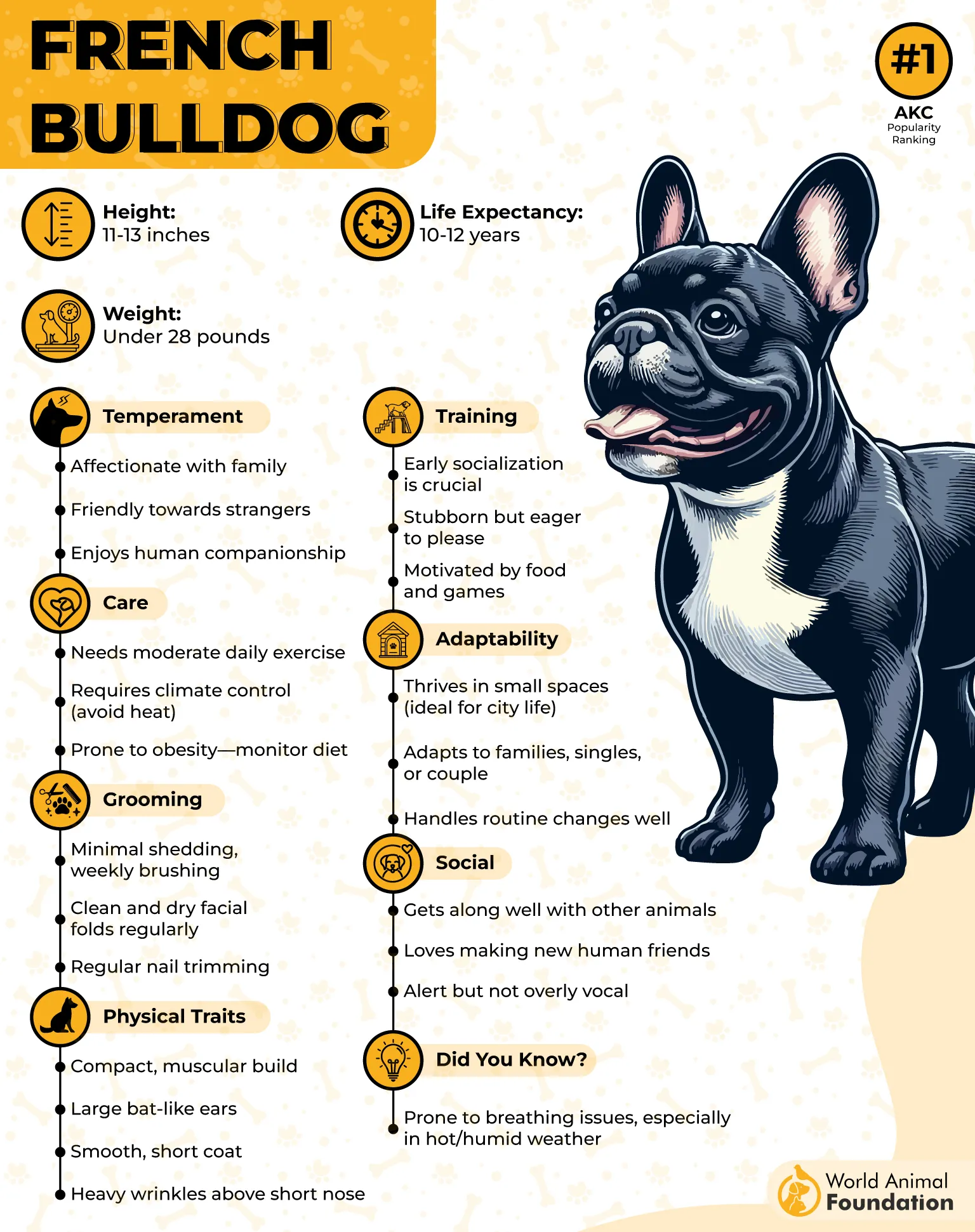
Care Tips
Moderate exercise routines: Short walks and gentle play keep your French Bulldog active without straining their respiratory or spinal health.
Regular cleaning of skin folds and ears: Daily hygiene helps prevent infections and keeps your dog comfortable and healthy.
Weight management: Maintaining a healthy weight and diet reduces the risk that your dog may develop diabetes later in life.
Frequent veterinary check-ups: Regular monitoring allows for early detection of breathing, spinal, and eye issues, ensuring a longer, healthier life.
Fun Fact
French Bulldogs often snore and snuffle while sleeping due to their flat faces, which many owners find endearing, but it also highlights the importance of monitoring their breathing health.
6. Great Dane
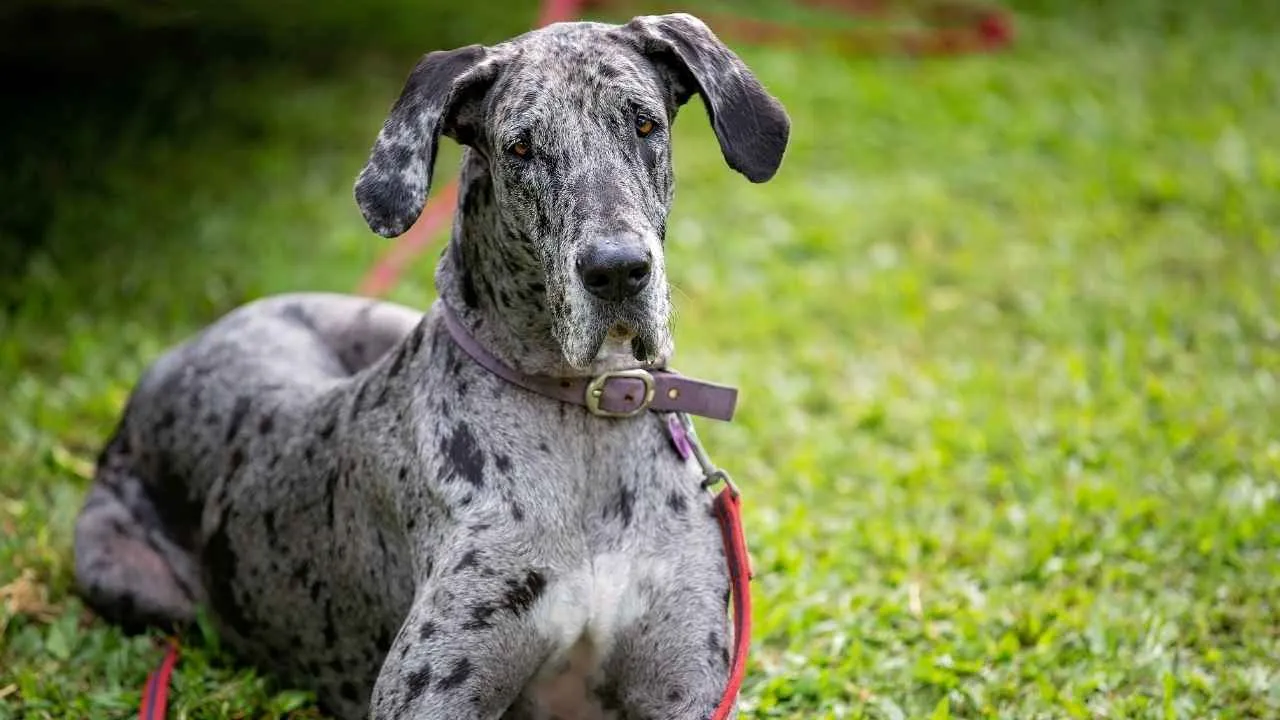
Great Danes are gentle giants in the world of dog breeds, admired for their massive size, graceful appearance, and friendly temperament. According to PetMD, known as “Apollo of dogs,” they are loyal family companions and often get along well with children.

However, their large frame and rapid growth make them vulnerable to serious health problems that pet parents must monitor carefully.
Common Health Problems
Heart disease: Great Danes are prone to dilated cardiomyopathy, a condition that affects the heart’s ability to pump blood effectively and can be life-threatening if untreated.
Hip and elbow dysplasia: Their enormous size puts stress on joints, causing pain and mobility limitations, especially in older dogs.
Bloat (gastric torsion): A rapid stomach twist can be fatal without immediate veterinary intervention, making this one of the most urgent health concerns. Bloat can cause severe abdominal pain.
Short lifespan: Due to their size, this large breed generally has a shorter life expectancy, making proactive care even more important.
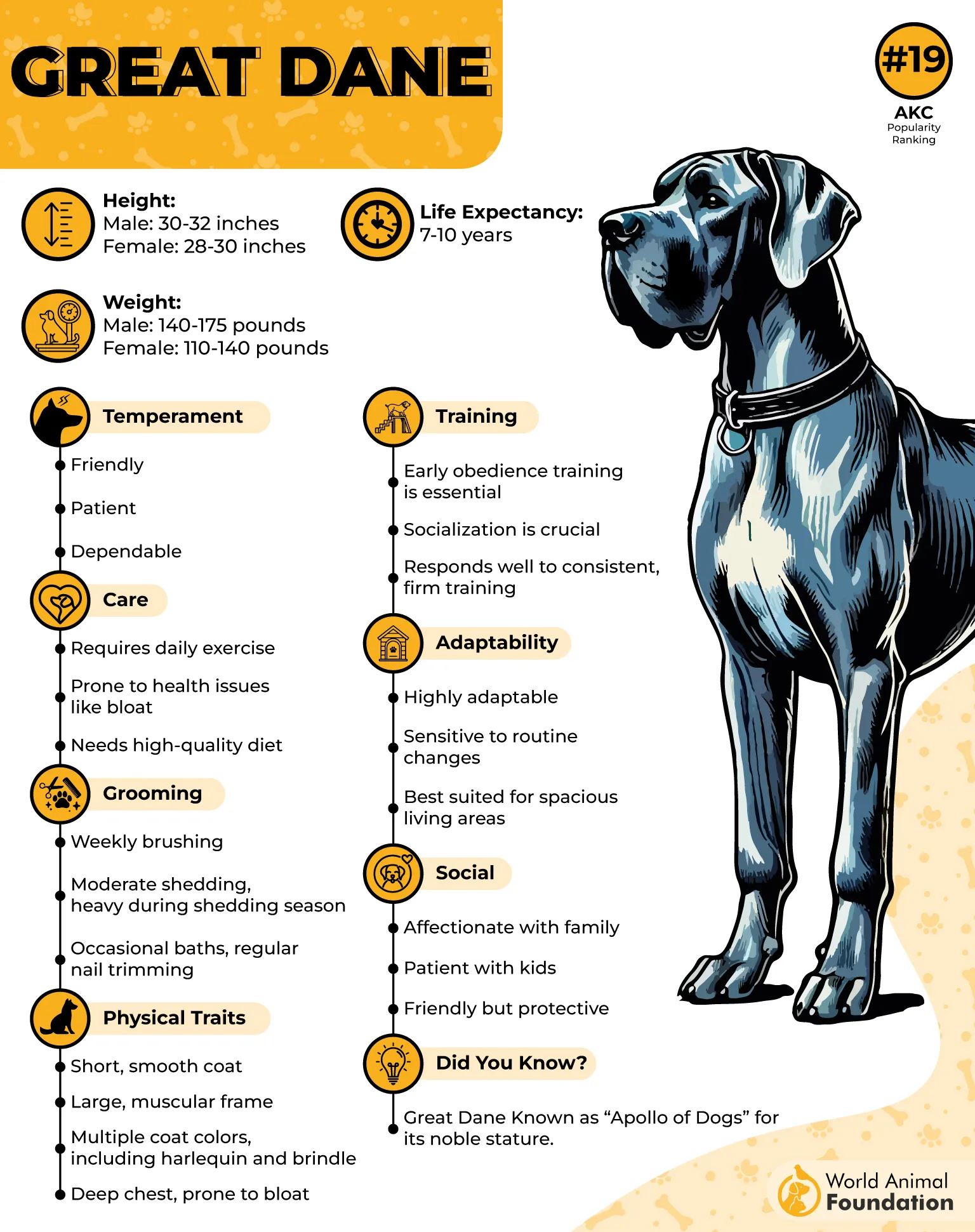
Care Tips
Support heart health: Providing a balanced diet with heart-friendly nutrients and scheduling regular vet visits helps detect early signs of heart disease.
Manage joint stress: Moderate exercise and avoiding excessive jumping or running on hard surfaces reduce the risk of hip and elbow dysplasia.
Prevent bloat: Feed smaller meals, avoid vigorous exercise after eating, and learn to recognize symptoms of abdominal swelling or discomfort.
Schedule Routine check-ups: Frequent veterinary examinations allow for early detection of heart, joint, and digestive problems, improving longevity and quality of life.
Fun Fact
Despite their size, Great Danes are often referred to as “gentle giants” because of their calm, friendly personalities. However, their enormous frame means that even minor health issues can have serious consequences, highlighting the importance of attentive care.
7. Boxer

Boxers are energetic and playful dog breeds, known for their strong build, expressive faces, and loyal nature. They make excellent family pets due to their protective instincts and affectionate personalities.
However, Boxers are prone to certain serious health problems that pet parents should monitor to ensure a long and comfortable life.
Common Health Problems
Heart disease (cardiomyopathy and aortic stenosis): Boxers are susceptible to heart conditions that can affect circulation and overall vitality, requiring early detection. In severe cases, joint or heart problems may require surgical intervention or specialized care.
Cancer: Mast cell tumors and other types of cancer are relatively common in this breed, making regular vet visits crucial.
Hip dysplasia: Joint issues can limit mobility and cause pain, especially as the dog ages.
Bloat (gastric torsion): This life-threatening condition can occur suddenly, making awareness and preventive care essential.
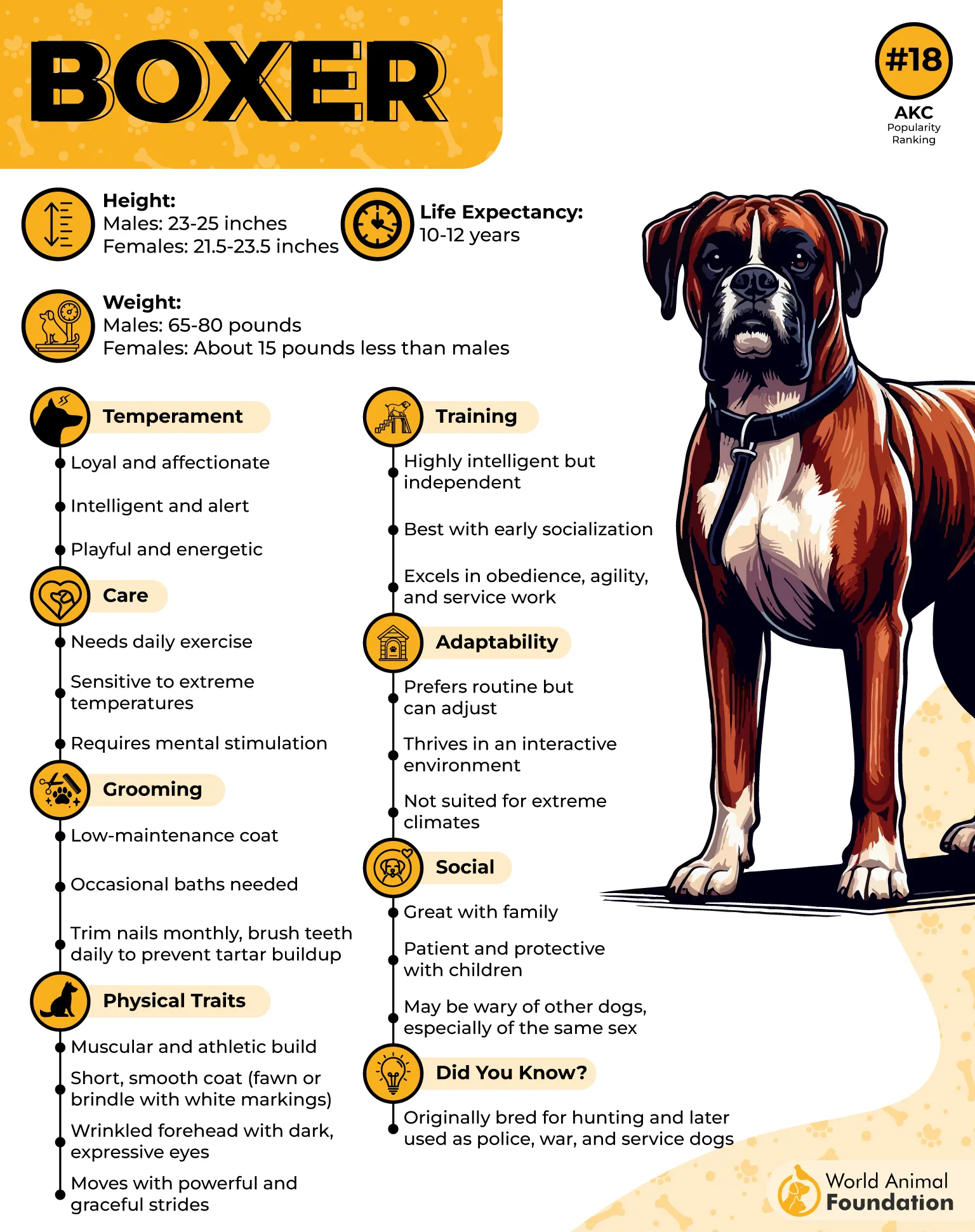
Care Tips
Regular heart monitoring: Frequent check-ups and screening help identify heart disease early, allowing timely treatment and a better quality of life.
Cancer awareness: Monitor for unusual lumps or bumps and schedule regular veterinary examinations to catch potential tumors early.
Support joint health: Provide a balanced diet and maintain a healthy weight to reduce stress on hips and joints, while engaging in moderate exercise daily.
Prevent bloat: Feed smaller, consistent meals and avoid vigorous activity immediately after eating to reduce the risk of gastric torsion.
Providing mental stimulation through toys and training helps prevent boredom and keeps your intelligent dogs happy
Fun Fact
Boxers are known for their boundless energy and clownish antics, but their love of jumping and rough play can sometimes worsen joint and heart conditions, so moderation is key!
Conclusion
While every dog brings joy and companionship, some dog breeds are more prone to serious health problems than others. Some breeds struggle with multiple problems, while others have few health issues and can thrive with basic care.
From Bulldogs and Pugs with their breathing difficulties, to Great Danes with heart risks, understanding these challenges helps pet parents provide the best care possible.
By maintaining a healthy diet, scheduling regular vet visits, and staying alert to early warning signs, you can improve your dog’s quality of life and help them live longer, happier years.
Being informed about common health problems and breed-specific risks is not just about prevention—it’s about love. Every dog deserves a generally healthy lifestyle, filled with play, comfort, and affection. Timely intervention and early diagnosis can prevent minor conditions from developing into severe health problems


